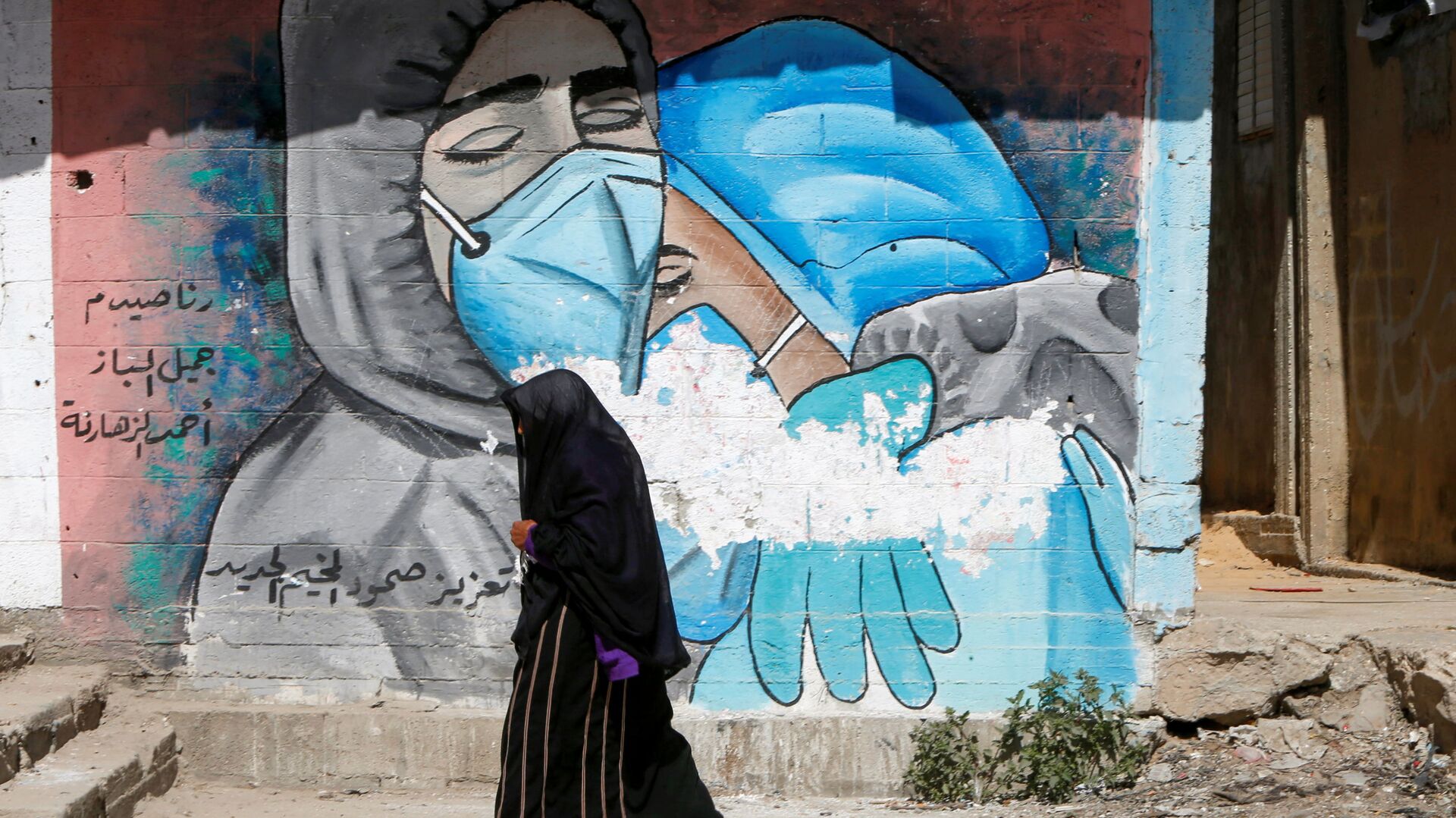The coronavirus pandemic continues in Gaza, which currently has nearly 20,000 active cases.
Recent days have seen a surge in the number of new infections, with 35 percent of all tests coming out positive.
While the second wave prompted the Hamas authorities that control the Gaza Strip to introduce a night curfew and close down schools and public institutions, vaccines that have proven to be effective in decreasing the spread of the virus are still out of reach.
In March, the enclave received 2,000 portions of the Pfizer vaccine and 20,000 doses of Russia's Sputnik V.
Last week, reports suggested that Qatar would purchase 14,000 doses of the Pfizer vaccine to vaccinate 7,000 Gazan merchants, who before the outbreak of the pandemic, were allowed to travel to Israel for work.
Still Waiting for the Vaccine
But Mohammed Ahmed, a 49-year-old Palestinian from the city of Khan Younes, who is supposed to be one of those to receive the much-awaited jab, says he has "no clue," when the inoculation will eventually take place.
And this means that Ahmed, as well as other construction workers like him, will continue to suffer from acute unemployment.
"I used to work in many Israeli cities, making lots of money that allowed my family to live decently. Now I am unemployed and I am struggling to make ends meet."
Ahmed lost his job as a wall painter in March 2020, shortly after the outbreak of the coronavirus pandemic, when Israel decided to close its Erez border crossing with the Gaza Strip to prevent the disease from spreading.
Thousands of Palestinian workers, who used to commute to Israel on a weekly basis, were all of a sudden cut off from their source of income, and Ahmed was one of them.
Demanding a Change
In a bid to change the situation, he along with other workers, tried to put pressure on their employers and on the authorities to find a way to vaccinate them.
In the West Bank that pressure bore fruit, and in early March Israel started to vaccinate the Palestinian Authority workers who cross over the border on a daily basis.
In the Gaza Strip it didn't, primarily because Israel was fearful of giving concessions to Hamas, which it has deemed a terrorist organisation. And while everyone is still dragging their feet, the economic condition of the Strip continues to deteriorate.
According to official data, in the second quarter of 2020 the unemployment rate in the Gaza Strip stood at 49.1 percent. More than a million out of its 2.048 million people live under the poverty line. Nearly 110,000 people in 41,000 businesses from different economic sectors have been either fully or partially affected by the pandemic.
Ahmed experienced poverty before. He started to work in Israel when he was 18 but stopped in 2006, after Gazan militants captured the Israeli soldier Gilad Shalit, prompting authorities in Jerusalem to revoke the work permits of Palestinian workers.
In 2019, these permissions were renewed but up until then Ahmed was struggling to find a job that would provide him with steady income. Often he found himself jobless for long periods of time.
This is why, looking back at the life he had, Ahmed says he doesn't want to see the repetition of those events. And he feels nostalgic, when talking about his work in Israel.
"It was nice working in Israel because I used to work with rich people and they paid me and others lots of money. In addition, by working there we helped the Gazan economy by bringing cash back and reviving local markets."
All Ahmed wants now is to have that option of travelling to Israel once again.
"If I get the vaccine I will be able to travel to Israel easily. Those, who have the jab, will not be required to quarantine so that means I will be able to resume my work and my family will not need to rely on others for help."




